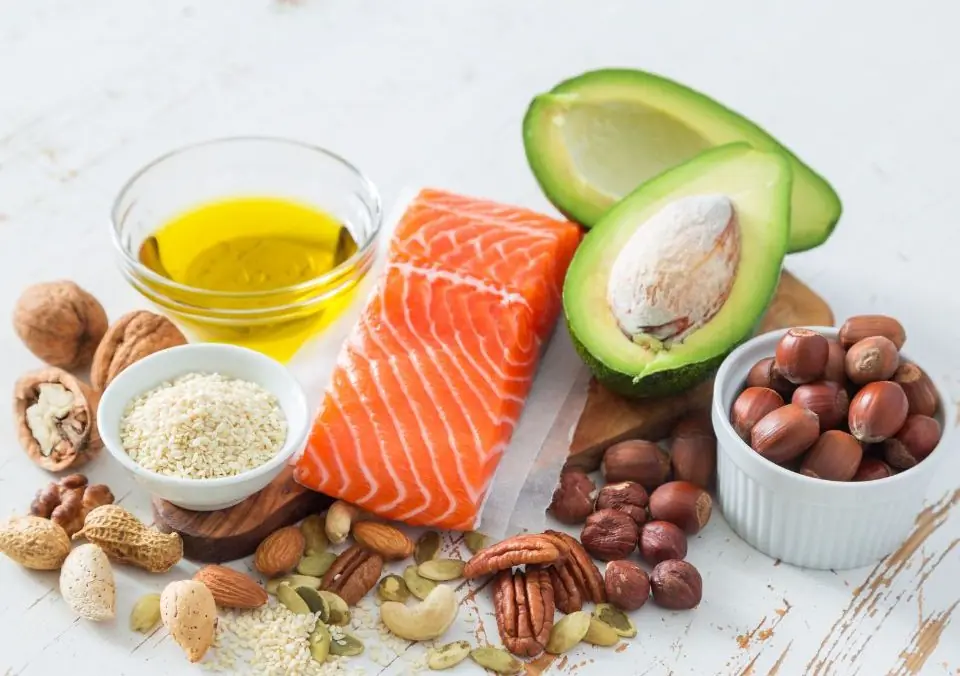Blog
Facts About Fat!

When it comes to dietary fats, the conversation has evolved significantly over the years. The recommendation for very low-fat diets once dominated nutritional advice, whereas current trends lean towards higher fat intake in various diets, such as the ketogenic diet. With so many conflicting approaches, it can be challenging to understand how much fat we should include in our diets, which types to prioritize, and where to find them.
The Role of Fats in Our Diet
The first step to understanding dietary fats is recognizing their essential role in our bodies. Fats serve several critical functions, including:
- Energy Source: Fats are a concentrated energy source, providing 9 calories per gram, as opposed to 4 calories per gram from carbohydrates and proteins. This makes fats particularly valuable in the diet, especially for those who need sustained energy for physically demanding activities.
- Hormone and Gene Regulation: Fats are involved in the production of hormones such as estrogen and testosterone. They also play a role in gene expression and cellular function.
- Brain Function: A significant portion of our brain is composed of fat. Specifically, omega-3 fatty acids are vital for maintaining brain health and function.
- Absorption of Fat-Soluble Vitamins: Vitamins A, D, E, and K are fat-soluble, meaning they require dietary fat for proper absorption. Without adequate fat intake, vitamins can pass through the body without being utilized.
- Satiety: Fats help us feel full and satisfied, reducing the likelihood of overeating by promoting a sense of fullness.
Understanding Different Types of Fat
Not all fats are created equal, and their differing structures offer distinct health benefits and risks. Here’s an overview of the primary types of dietary fats:
1. Saturated Fat
Saturated fats are typically solid at room temperature. They are mainly found in animal products and some plant oils. Long thought to be unhealthy, saturated fats have been linked to an increased risk of type 2 diabetes, heart disease, and stroke. However, recent studies suggest that the relationship between saturated fat intake and heart disease risk may not be as straightforward as previously thought.

2. Trans Fat
Trans fats are primarily found in partially hydrogenated oils used in many processed foods like baked goods, snacks, and margarine. The consumption of trans fats is associated with an increased risk of cardiovascular disease due to its ability to raise bad LDL cholesterol while lowering good HDL cholesterol. Many health organizations advocate for minimizing trans fat intake to improve overall health. For more detailed information, refer to the FDA guidelines on trans fats.
3. Monounsaturated Fat
Monounsaturated fats are often considered the healthiest type of fat. They can improve cholesterol levels, thereby lowering the risk of heart disease. Found in foods like avocados, olive oil, and nuts, consuming these fats can lead to improved heart health and overall well-being. The Mediterranean diet, rich in monounsaturated fats, has been associated with a lower incidence of heart conditions.
4. Polyunsaturated Fat
Polyunsaturated fats include essential fatty acids, such as omega-3 and omega-6 fatty acids. Omega-3s, found in fatty fish, chia seeds, and walnuts, are acclaimed for their multiple health benefits, including reducing inflammation and supporting heart health. Omega-6s are also essential but should be consumed in moderation due to their tendency to promote inflammation when taken in excess. The balance between omega-3s and omega-6s is crucial for health, as studies suggest a high omega-6 to omega-3 ratio linked to various health issues. For more information on omega fatty acids, check out this FDA page on dietary fats.
Healthy Sources of Fat
Incorporating healthy fats into your diet is essential for optimal health. Here’s a comprehensive list of nutritious fat sources to consider:
- Fish: Fatty fish like salmon, mackerel, and sardines are rich in omega-3 fatty acids. Aim for at least two servings of fatty fish per week to reap their heart-healthy benefits. Learn more about the benefits of fish here.
- Pork: Pork is an excellent source of monounsaturated fats, especially when opting for lean cuts like tenderloin.
- Beef: Grass-fed beef is known for its higher omega-3 content compared to grain-fed beef. This might be a healthier option to include in your diet.
- Lamb: Like beef, lamb is a good source of omega-3 fatty acids and can be enjoyed in moderation.
- Avocados: Avocados are rich in monounsaturated fats and contain fiber and vitamins. They can be enjoyed in salads, on toast, or as guacamole.
- Olives and Olive Oil: Extra virgin olive oil is renowned for its heart-healthy properties. It contains antioxidants and is a staple in the Mediterranean diet. Just a tablespoon provides a great source of healthy fats.
- Coconuts: Coconut milk and coconut oil are sources of medium-chain triglycerides (MCTs), which may provide health benefits such as weight control. Explore the properties of coconut oil.
- Oils: Different cooking oils like avocado oil, canola oil, and sunflower oil provide healthy fats when used within a balanced diet.
- Nuts: Almonds, walnuts, and pistachios are nutrient-dense and rich in healthy fats. Studies show that they can help reduce heart disease risk and support weight management.
- Seeds: Chia seeds, flaxseeds, and sunflower seeds are excellent sources of omega-3 fatty acids and provide fiber, protein, and antioxidants.
- Cheeses: Although often seen as high in saturated fats, cheese can be part of a balanced, heart-healthy diet when consumed in moderation. Varieties like feta and mozzarella offer beneficial nutrients.
- Whole-Milk Dairy Products: Full-fat dairy products have been shown to provide several health benefits and contribute to a healthy weight.
- Eggs: Eggs are not only a great source of protein but also contain healthy fats and essential nutrients.
Choosing Local: Arizona-Grown Products
Eating healthy fats doesn’t just contribute to personal health; it can also support local economies. Many of the healthy fat sources listed above can be sourced locally in Arizona. Local farmers and ranchers provide a variety of products, including:
- Pork: Arizona’s pork industry has grown steadily, promoting responsible farming practices.
- Beef: Locally raised beef is not only a source of essential fats but also often comes from sustainable farming methods.
- Lamb: Arizona-raised lamb can be found in various markets and provides a rich source of nutrients.
- Eggs: Fresh, locally sourced eggs often come from free-range farms across the state.
- Dairy: Arizona boasts quality dairy farms that produce milk, cheese, and yogurt, which are vital for a well-rounded fat intake.
- Nuts and Olives: The state is known for its pecan and olive orchards, providing fresh options for incorporating healthy fats into your diet.
When grocery shopping, consider looking for Arizona-grown products. Many local markets and grocery stores feature these fresh items, supporting both your health and the local economy.
Conclusion
The discussion around dietary fats is complex, but understanding the various types and their effects on health can help make informed choices. By prioritizing sources of healthy fats and supporting local agriculture, you can create a balanced diet that benefits both your body and your community.
For those interested in further exploring health and nutrition, websites like Fill Your Plate provide valuable resources, articles, and information on sourcing local products. Prioritizing healthy fats ensures you harness the benefits of these essential nutrients while enjoying delicious and diverse foods from your own backyard.
By practicing moderation and making informed choices about fat intake, you can enhance your overall health, support sustainable practices, and enjoy a varied and delicious diet.
By Heide Kennedy, Arizona Farm Bureau Communications Intern


















